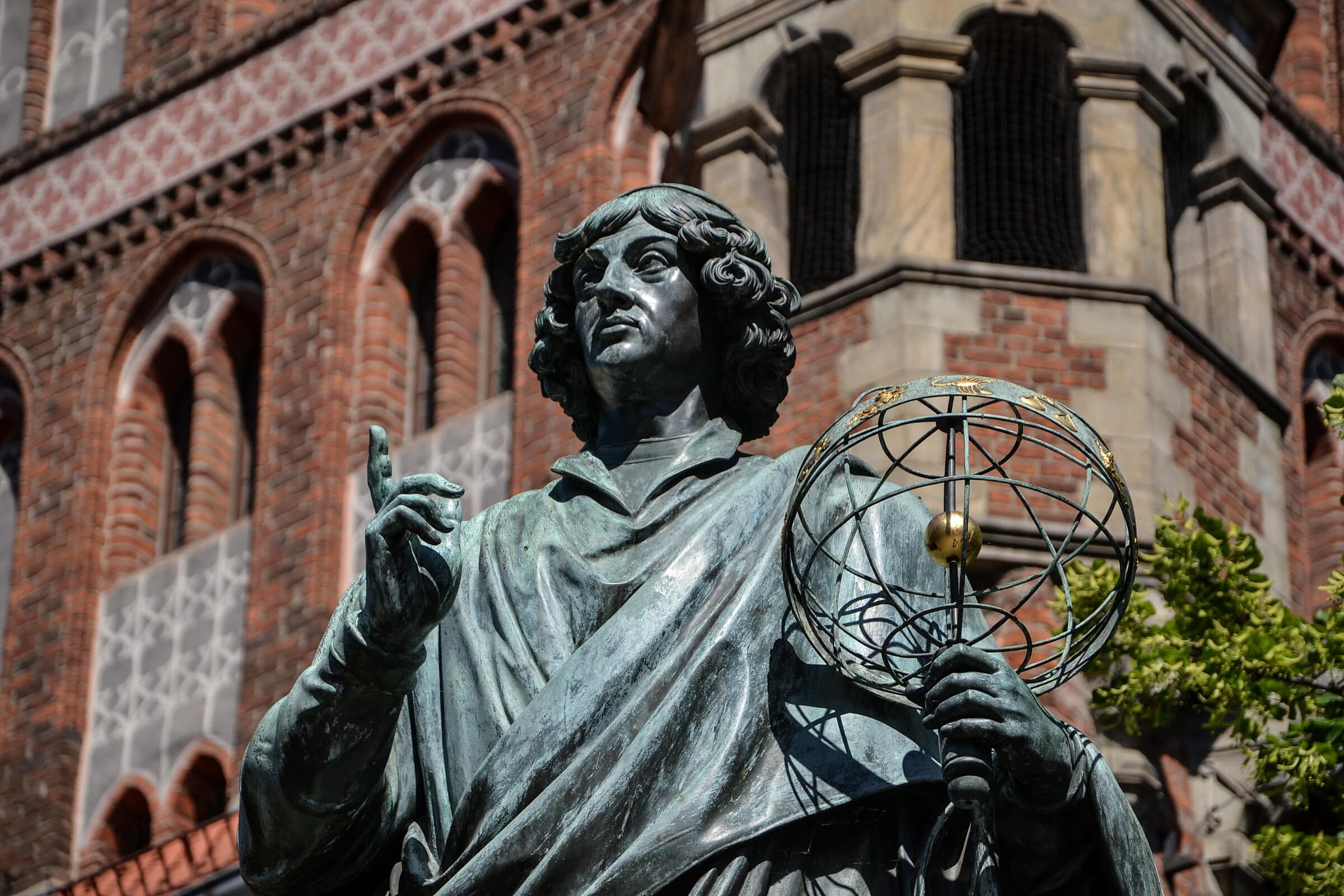 Faith & Science
Faith & Science
 Physical Sciences
Physical Sciences
Jay Richards: Toppling a Myth of Human Insignificance

Nicolaus Copernicus “shattered the way humanity understood the universe and its own place in it,” as those profound historians over at Fox News observed recently. You’ve heard it countless times, from high school onward. Copernicus upset an ancient and cherished belief whereby Earth occupied a privileged place at the center of the universe. Or did he? It’s remarkable that this historical chestnut persists in full force today.
Philosopher Jay Richards’s book The Privileged Planet, co-authored with astronomer Guillermo Gonzalez, comes out in a new expanded edition tomorrow. In a well timed conversation at Uncommon Knowledge, host Peter Robinson asked Dr. Richards, and cosmologists Brian Keating and Luke Barnes, about this seemingly indestructible “myth from the 1800s,” as Barnes puts it. Robinson quotes geochemist Ross Taylor, a proponent of the myth, but Barnes and Richards knock the idea right over. Starting at 44:49:
Jay Richards: Okay, so notice what he [Ross Taylor] is doing. He’s arguing that … before Copernicus, the pre-Copernican cosmology put humans in a position of privilege by putting [Earth] in the center of the universe. And the general argument is that science, everything we’ve discovered, just shows how insignificant we are.
Peter Robinson: Correct.
Jay Richards: And so, the idea is that physical location and metaphysical significance somehow correlate…. No historian that you ask about this will tell you that in the pre-Copernican cosmology, the best place to be was in the center. This was Aristotle’s physics, remember? And so, the center, that’s where the heavy stuff falls, remember, it was the moon and everything above it that’s made of this fifth element, this kind of unchangeable, ethereal substance, right? That was actually the heavens…. The surface of the Earth, at best, would have been a sort of intermediate place, [where] things die and fall and decay. So, the center of the universe in the pre-Copernican cosmology, if you wanted to give a location metaphor, you’d say it’s the bottom, it’s the sump.
Peter Robinson: Even on Aristotle’s view, we lived in a fallen world.
Jay Richards: So, … if you understood what the early scientists after Copernicus were doing, they didn’t see themselves as demoting humanity or the Earth or anything like this. It was only in the 19th century that there’s a kind of reinterpretation of what actually happened in order to make this kind of dysteleological argument.
In other words, the Copernican “demotion” of mankind, in the 19th century’s historical mythology, was not in fact a demotion but if anything a promotion — from the center of the cosmos, which is the bottom, the place you don’t want to be, upward to a better and more exalted place. It was 19th-century materialism that needed the so-called demotion, for ideological reasons, and the science historians of the time obediently invented it.
We’re only a day out from the release of the new edition of The Privileged Planet: How Our Place in the Cosmos Is Designed for Discovery, but you can still pre-order your copy now!


